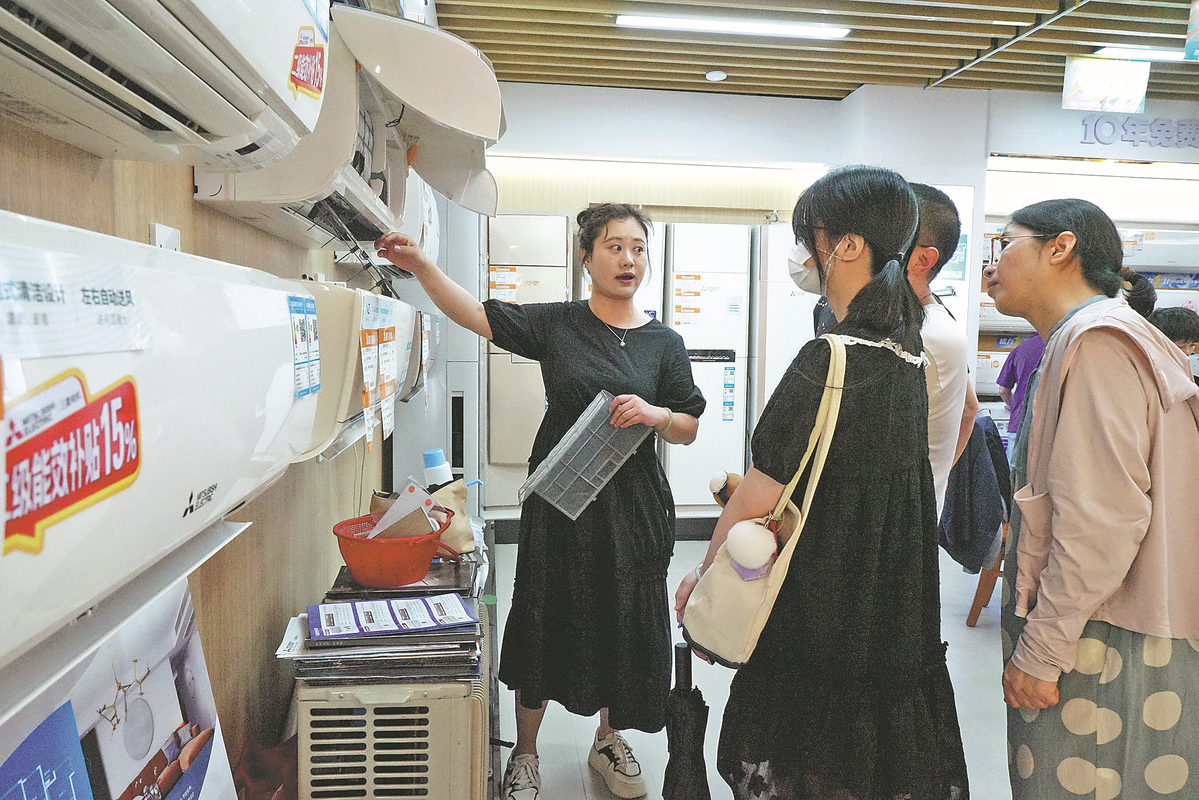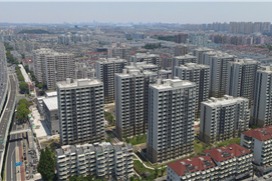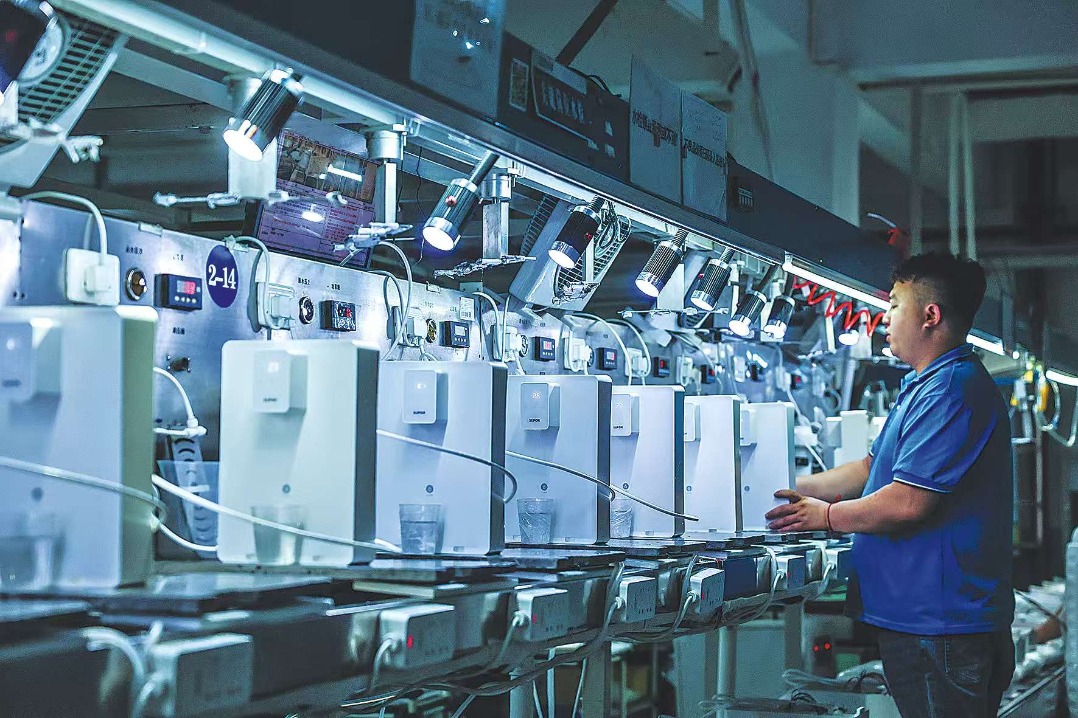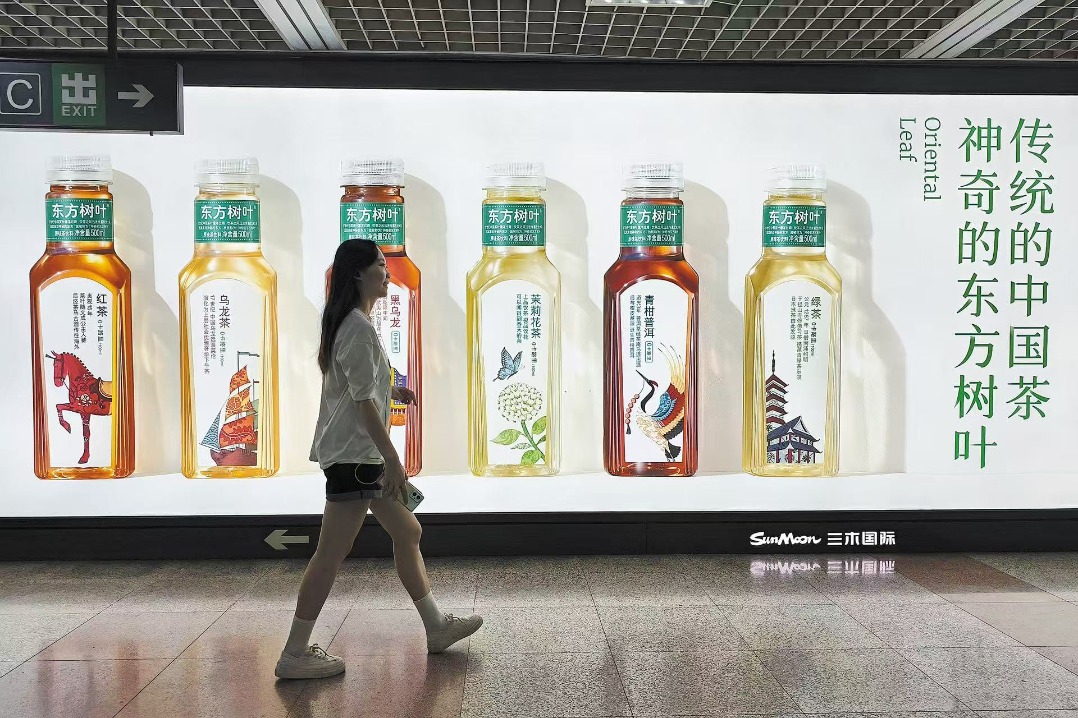Trade-in plan helps broader energy goal
Upgraded greener air conditioners among hot-selling home appliances


As heat waves intensify across China, household air conditioner use has continued to grow, and rising residential cooling demand has been placing increasing pressure on the power grid.
China's consumer goods trade-in policy, which is aimed at stimulating household spending, has encouraged consumers to replace their outdated appliances with more efficient models, as consumers receive a subsidy covering 15 percent of the retail price for grade 2 energy efficiency models and 20 percent for top-tier grade 1 models. This has in turn supported the country's broader energy and climate goals.
A new report by United Kingdom-based energy think tank Ember said China's consumer goods trade-in program could accelerate the annual efficiency improvement rate of its room air conditioner stock by up to 70 percent. This could potentially reduce residential cooling power use by up to 4.1 percent this summer, demonstrating tangible energy savings in just one year. This reduction could save consumers up to $943 million on electricity bills this year.
"The consumer goods trade-in program is a major initiative that supports China's broader efforts to boost overall domestic consumption. While set to conclude in 2025, its impacts are long-lasting. For example, the program drives energy efficiency improvements in China's room air conditioner stock," said Yang Biqing, energy analyst of Ember in Asia.
So far this summer, the power grid loads in Jiangsu, Anhui, Shandong, Henan and Hubei provinces have hit record highs. About 90 percent of the incremental load on Jiangsu's power grid was attributed to electricity use by air conditioning, said the National Energy Administration.
The trade-in policy, which started last year, encourages residents to use more energy-efficient products and replace older models.
The plan outlines the issuance of ultra-long special treasury bonds totaling 300 billion yuan ($41.8 billion) to bolster the program this year, doubling from that of 2024, said the National Development and Reform Commission.
Since late June, major home appliance retailer Suning Group reported an 82 percent year-on-year growth in sales of energy-efficient air conditioners. Products with energy-saving features have been more popular, the company said.
"The trade-in policy provides consumers with economic benefits. Many consumers tend to choose new devices of higher quality and better performance when participating in the program, and it has driven the development trend of home appliances and digital products toward higher-end, smarter and greener directions," said Denis Cheng, consumer sector leader of EY Greater China.
China has underscored the importance of boosting domestic demand and consumption to spur economic growth in multiple meetings, and the trade-in policy has injected fresh impetus into the consumer market and the economy.
As of June this year, the trade-in policy has driven sales of related items of over 2.9 trillion yuan, with about 400 million person-times benefiting from the subsidies. Since September, retail sales of home appliances by enterprises above a designated size have maintained double-digit growth, said the Ministry of Commerce.
"The trade-in program for consumer goods is not merely a consumption stimulus policy. It has also encouraged consumers to upgrade to a more intelligent and eco-friendly quality of life," said Commerce Minister Wang Wentao during a news conference on Friday.
zhuwenqian@chinadaily.com.cn




































